|
There wasn't even a pandemic happening when we had this conversation. How quaint. How fabulous.
There was a pandemic during our shorter subsequent conversation, wherein we go over everyone's favorite virus (further thoughts on that lovely conversation and how it ended up being used in some circles here), but this 20-minute discussion is about everything besides pandemics, which, wouldn't you know, still have relevance! There is one interesting twist to our thoughts on buses being free, however; in the broadcast we hypothesize about that oft-trumpeted and frankly lovely concept, but COVID-19 has shown us what free buses really look like. I've often thought it was a good idea, but we now know that security personnel at terminals and extra (extra) cleaning would need to be a concern. Click here to listen to our January 6 chat! Description from KIRO's website: Nathan Vass drives an overnight Metro bus route through Seattle's downtown core. He's also a filmmaker, an artist, and now, an author. On his well-known blog, Nathan tells stories about the people he encounters along his route, and that blog is now a book, called "The Lines That Make Us." Nathan joins Dave Ross in the studio to tell us some of those stories, and explain why he's stuck around on one of the least popular routes as long as he has.
0 Comments
An evening in Paris, alone, a weeknight in the 12th just north of le Parc de Bercy. I'd just taken the route 27 out there, having developed as much an affinity for Paris' world-class bus system as their world-class metro. I preferred the buses because you could look outside. They linked the city in ways the subways couldn't.
Was this days before the infamous 2015 attacks, or right after? I'm surprised I no longer know. Paris has always been a city pregnant with possibility, whose silences contain the multitudes of history, a city where the present moment is always in danger of being overwhelmed by the density of its past. The bombings and shootings of that week overwhelm my understanding not just of the empty days afterward, but also the lost innocence just prior. Enough time had elapsed since any urban catastrophe that we went about life with careless ease, the beautiful ease of heedless youth; we seem to alternate throughout life, oscillating between 1) periods of perspective better described as youthful abandon, regardless of our age, and 2) a certain sober melancholy. Large cities behave the same, and the transitions are instigated by moments of seismic comedy or tragedy. Melancholy, Hugo wrote,* is the happiness of being sad. It is impossible for me to recall the days leading up to the attacks in any other light. They may have been days of careless ease and youthful abandon; I'm sure they were. But I will never remember them that way, unless it is to remember the frailty of happiness before the fall, before it knows how hard it needs to work to stay alive. The Cinémathèque française was doing a comprehensive retrospective on Martin Scorsese, showing all of his work at their vaunted theatre, and most of it projected on film (it's from a screening of a pristine 35mm print of Bringing Out the Dead** that I became that film's one adoring fan!). Naturally I was there almost every night. This evening I was nearby at a Chinese restaurant just north of the Cinematheque. I've been to China, but the best Chinese food I've had has actually been in Paris. They have some killer spots there. This wasn't one of them. It was the Parisian equivalent of Nasai Teriyaki, if there can be such a thing, but I didn't care. Doesn't getting dinner before a movie carry a sense of urgency? You're alone, in love with cinema, about to see a classic film you'll never see in a theatre again, and you want to be fully awake for it, fully present. You need food. You got there too late for a decent meal because you're cheap and you took the bus, and you don't care what food it is as long as it isn't McDonald's. This Chinese hole in the wall was just the ticket. I ordered in clumsy French. You have to speak French in France. It doesn't matter if you're terrible at it; you respect them more by trying their language then by continuing a mastery of your own. Contrary to the stereotype, no person in Paris was rude to tourist me, and I'm convinced it was because I always tried. I ordered to go because I wanted to eat outside. I asked them which meal could be made the fastest, and the middle-aged woman at the counter was accommodating as I embarrassed myself linguistically. Only one other party was in the place: two thirty- or forty-something men seated near the door, close to me. As much as Parisians can be, they were unglamorous, genuine in their plain attire and unshowy character. I couldn't divine their relationship. Friends perhaps, or lovers, or colleagues; in any event definitely long acquainted, comfortable with sharing silence. You only go to cheap Chinese with someone you know well. When my meal came, I asked in my clumsy French if she had chopsticks. My family is Korean: who am I to eat noodles with a fork? It'd just be wrong. I had to ask. She obliged. They could hear me, the two men. They heard my terrible French when I came in, they listened as I'd blundered through ordering, and now they ate silently as I mangled my request for chopsticks. Avez-vous des baguettes? Then the one fellow said quietly, amiably, to his partner: "Élégant!" They'll never know they made my night. I smiled to myself. They didn't care about my language abilities at all. They saw me rather for what I did. I needed to eat with chopsticks, and that struck them for some reason. The last thing I felt in there was elegant. They made me feel better. Was it before the attacks, or after? Years later this is the question I get stuck on. They say what you lose first of memory are timelines. Perhaps it doesn't matter. Perhaps melancholy encapsulates the whole of existence. Whether those two men were enjoying each other's company on a night before the fall, or in the tough days of after, there is something endearing to me about their unsophisticated and quiet affection for a simple night out. Unpretentious food, together, shared and enjoyed. There's not enough time to make fun of people; only to appreciate them. Life is not easy. They were both old enough to know. You do the best you can. --- *"La mélancolie, c’est le bonheur d’être triste." From his 1866 Les Travailleurs de la Mer, translated into English as Toilers of the Sea in 1888. **This 1999 Martin Scorsese picture the only film I've seen that truly understands what it means to be a bus driver– especially a bus driver at night. You have to be crazy to do it, first of all. You have to care in a way that still protects your soul. That involves a certain amount of insanity. And you can't be God, fixing everything; at some point you have to recognize that your role is to simply bear witness. To simply be there. That is enough, and it can mean a lot to people. Here's how it all began.
Two guys were sitting in the bus stop at northbound Rainier and Edmunds, drinking and talking. I remember noting that with surprise when I first started driving on Rainier: Out here, people hang out in bus stops. I pulled up with my 7, and the guys became animated. "Look, it's Nathan's bus! Let's get on!" I didn't know they'd said that. All I saw were two animated friends stumbling aboard. But unbeknownst to me, a woman had walked by on the sidewalk at the exact moment they'd spoke. She didn't need the bus, but took note of the fact that these two had decided to ride a bus for no other reason than that this driver was driving it. Hm. Interesting. Months would go by. The aforementioned pedestrian, a distinguished author and professor of English at PLU, would find herself at the MOHAI gift shop in early 2019. Intrigued by the cover, she picked up my book and would later read it in the spring of that year. She would realize the author was the same person as that bus driver from before. Wendy Call is her name, and after reading it invited me to participate as an author in PLU's Visiting Writer Series, a day of events wherein I taught class, got interviewed by the campus literary journal, spoke to a group about life as an artist and the creative process, dined with faculty, and read to another group from my book and blog, with further discussion and Q&A. It was one of the best days and biggest honors I can recall, and the highlight of this best day was the scattered conversation held between myself and the students who attended the day's final event, the reading. Most of the crowd had left, but those who wanted to stay stayed, and after the talk was given and the books signed, we joined each other as the equals we were, unorganized clusters of enthusiasm here and there in the big, now-emptying hall. We rushed to the other end of the room to get a picture together; I scurried to and fro, packing up my camera gear while listening and talking, earnest handshakes as the day finally slowed down, and I could register the beauty of what these folks had to share, their kind words and desire to live in the goodness we had together made. It was the afterglow, my reeling thrill at having made it through all the events, and apparently capably enough. My excitement and gratitude mirrored their own, as we together rose on the altruistic high of a joy only we could cocreate, that of giving and receiving love, and genuine appreciation. The highlight of this highlight was going over film photography prints with a remarkable student, the sort whose questions and aptitude remind you that it's okay to believe in magic, that what comes next can be brighter and richer than even what came before. Mathilde had the Glow. We looked at her first contact sheet and talked about contrast levels and depth in the frame, but really we were just sharing joy, riding the epicenter of a wave built by everyone in the room. They made the day possible, most especially Wendy Call, the professor with a sharp eye for life. Mathilde and I were able to close the evening out as we did because of this moment: Two guys at a bus stop who'd said, "Look, it's Nathan's bus! Let's get on!" That and a passersby with an observant eye, who noticed and put it in her pocket for later. That's the alchemy of the universe, just the tiniest glimpse of how it all works, and I am left with no other conclusion than that with enough reflection and hindsight, it is an alchemy I could only describe as entirely, unimaginably, and incomprehensibly beautiful. --- Above photo by Wendy Call. Some of the various PLU events were filmed; I'll post them here in time! Broadway and Pine, inbound.
It's one of my favorite stops because, like Fourth and Pike, there's usually a mob waiting for you. In the 'burbs, crowds at bus stops form themselves into orderly lines; here in the city center, disorganized mobs are the going thing. I'll take either: it's the pleasure of a big group entering your space, and getting a quick second to greet every individual stepping aboard. So much life, rushing at you in such short sequence. Can you believe each is the center of their own vast and detailed life, with joys and sorrows just like yours? Here's a man my generation but stockier, Latino, fluent in the language of the street. He was clad in beanie and sweatshirt and collapsing pants, slightly unshaved with piercing clear brown eyes, a man at ease with himself. Not all incoming passengers look at me; he did. People comfortable with street life usually do. "I need to get your autograph, bro!" I smiled. "Aw naw, I'm not that good!" "For real though. I read your story in the paper when I was in prison. It brought tears to my eyes, dogg." Then he was gone, walking down the aisle and already replaced in my field of vision by the next face. But the comment stuck. I was moved, and at a loss for words. Over two years later, at a totally unrelated stop in a different neighborhood, I greeted a different face: "You wanted the 7, right?" "Yeah, just going around the corner, " he said. "'Round the corner and down the street I guess." "Cool, just checking. Most of the folks here want the 70." "'Ppreciate you stopping. Last dude just rode on past! You ain't like the others, man. I done rode wit' you a few times now, you always be respecting the people, whether they got the cash or no." He was sprawled out on the front seats, a thin and older African-American man with glasses, owning the space, his arm around the seat next to him. He observed as I acquiesced to a new passenger's request to ride for just partial payment. "See, just like that, how you let him on. Lil' thing like that could make somebody's night. In fact, I may as well tell you, I was in prison not too long ago." "Okay." "And I read that article about choo." "You found the article!" "Yeah, it was the Times, man. Front page. And I ain't gon' lie, man, reading that paper, about you, how you is with the people out here at night- that brought tears to mah eyes, man. You got no idea the effect you be having on folks that's down on they luck, that's going through some real shit. People need that light. Tears to mah eyes." The world is so much larger than we can ever know. What a remarkable coincidence. I briefly wondered if they knew each other. Did they share a cell, or a block? Or were they, far more likely, two lonely souls in similar rooms dozens or hundreds of miles away from each other, reading and feeling the same restorative hope? Who had no idea their loneliness was shared by a stranger far away, also in captivity; who also was moved to heart-heaving silence by the same words, the same glinting reminder that compassion lives on this earth and was directed from time to time at faces just like theirs. Someone out there knows me, they thought. Knows I'm human, good enough, worthy of kindness just because I exist. I share this with you not because I am the someone in the article, but because I am the only person with the ability to tell you the piece meant something to these two individuals. Neither knows, in all likelihood, of the other's existence. But we are all rather less alone than we imagine. Recall that every emotion thrown your way by others is something you too have felt the seeds of. That the positive impact you have on others will always be more than you are aware. And that the universal human sensation, loneliness, is felt by all, and that by extension its antidote is longed for with similar potency. Let me live up to the words in that article. To the promise it made you two feel. You read it and believed, were inspired; in times like these the world would have us feel otherwise. Being human, I may let you down; but I'll do my best not to. “Listen, I gotta tell you a story.”
“Sure,” I answered. “Lemme let these people on real quick.” “Yeah.” He was excited, grinning in the dark at Rainier and Othello. By day he was one of those fellows who spin the “Slow” and “Stop” signs at construction sites. Otherwise he was himself, a man who’d survived multiple surgeries and related complications, who’d been told by doctors he’d be dead by now, a stubby older gent whose humble appearance belied the miracle of his every new waking day. He was standing at the very front of the bus, next to me, animated. He leaned forward. “So this guy I know was plannin’ to kill his wife, murder his wife, and then make it look like an accident, right?” I struggled to take in the enormity of the sentence and all it entailed. I said the most truthful thing I could think of, which was also the most obvious thing: “That’s a terrible thing to do!” He was brimming with energy, and slurred past his already shocking statement because, as I was about to learn, he had even more astounding news to relate. “Hold up though. He's plannin' on murdering his wife, but before he can– he goes and gets run over by a train!" "What?" "Yeah, he got mangled up so bad… He got so mangled the doctor said they cain't even do no autopsy. He too messed up." "Man! Justice don't usually work that quick!" "I know! Crazy, right? He was a bad man, too. I mean bad. Hated women, hated his wife…” "Yeah, that's no way to treat a lady." "No way to treat anyone! This guy's plannin’ a murder! Then he goes and gets tore up by the Amtrak! I had to laugh, man. Ah mean you know, but I had to laugh. What he think was gonna happen? Ain’t nobody gon’ notice? Ain’t nothin gon’ happen to him?” “She's one lucky girl!” “Yeah she is.” “Man! She need to go buy a lotto ticket!” “Yeah she should! Hell, I may get one for her! She's a friend a mine, she was hiding out at my house, ‘cause she knew. She heard him planning it. So she was hiding at my spot, and I think he maybe knew about it, where she was. Except don't matter no more ‘cause brother got creamed. She's so relieved. This guy was awful.” “Sounds like it” “She don't have to worry ‘bout nothin' though. Some guy wit'a axe comin' up on her or whatever dumb shit, that's the past. ‘Cause he walked out under them train wheels like a dumbass.” “Wheels of justice, baby!” “Literally. They were turning real fast!” “Love it when it works like that. Usually takes forever, right?” “What goes around comes around. Sooner or later!” Somewhere out there a woman was starting life anew, and I knew her relief and newfound freedom would permeate out into everyone around her. She would have the Glow, and though most would never know where it came from or why, the Glow is the Glow, and such goodness makes all things better. I was getting it secondhand, through her friend speaking to me now. His enthusiasm was infectious. It wasn’t bloodthirsty, you understand. It was optimism and belief confirmed, the proof we always hope for and sometimes see glimmers of; glimmers we know we need to cherish. There's a hint of truth in this mysterious and silent universe, design, workings more intricate and delicate than we can fathom. Sure, this place may be incomprehensible, but isn't that part of its beauty? We’re so in love with logic we’re too often blind to Life’s unspoken vastness, so in the thick of things we only catch a whiff of understanding with hindsight. But this… this made so much sense, as brutal as that sounds, so much so that even we small humans could put it together. Of course. Joy was coursing through his veins now, for the life of his friend, for the fun of telling me, but most of all for the deep-seated shuddering thrill of Knowing, for even just a moment: Order. The comfort of knowing it might be there. Honing the skill of having the eyes to see it. That is what I try for, and that is what I have not attained; it is what I have to be okay with never completely finding. But I can speak for myself when I say: Along that journey lies immense peace. It's the sort of thing you get up to during a pandemic. I've finally had a moment to organize all the film writing I've done onto one easy-to-access page, with new essays on why I find it important to write about film, plus a page dedicated to exploring Terrence Malick's late-period work, about which not enough has been written (possibly because I sometimes feel like I'm the only person who loves it so!).
Also available are twelve long-form essays on various topics, from how Tarantino has changed in his use of violence as he's gotten older to what films greenlit after the 2016 election have in common. In addition to extensive top-ten lists (each with their own writeups on various films) for most of the years the blog has been running, I'm also making publicly available for the first time my 457-page monstrosity of a thesis, which I wrote during my UW years and updated in 2017. I guess you could say I like writing about movies. For all of the above and even more, click here. A huge, huge thanks to Erica C. Barnett for her graciousness and inclusion of all sides of this thorny issue in detail. I feel excited and honoured to be interviewed along side my wonderful bus driver buds, Sam, Audrey and Jeremy; Erica is also a friend of mine from our shared interests in transit and urbanism in Seattle; check out her blog here.
Doing press like this isn't always a collaboration between friends, but that's exactly what this one felt like. Please enjoy! Click here for the full article. Check out the below for more of Nathan's thoughts on COVID-19:
"[B]ecause I stumbled down the road like a drunk... that doesn't mean it's the wrong one."
Directed by Terrence Malick. With Christian Bale, Cate Blanchett, Natalie Portman, et al. 118m; 2.39:1. Synopsis: A well-heeled Hollywood screenwriter searches for direction after realizing achieving his ambitions isn't the answer to happiness. Theatrical Trailer. The ultimate extension of cinema lies beyond narrative. Film is a great medium for telling stories, but it can do much more. Actors performing well-written lines is the province of theatre. Cinema has the ability, with its preponderance of image and sound, to be far more potent. It has no need to reduce experiences to words, no burden to simplify life into discrete units. From day one it held the promise of something bigger, deeper, larger. The earliest films reveled in the power not of the word, of course, but of the image. Take a look at Dziga Vertov's Man With a Movie Camera, the legendary 1929 film from which it's been said the origins of all stylistic innovations in cinema can be found, but which more importantly captures the vitality of life experience without the need for a plot. You don't need story. You have life, and isn't life, after all, what happens in between? Let Knight of Cups wash over you. Don't try to figure it all out. It's bigger than that, designed to reach you on a level beyond the intellectual. The cavalcade of stunning, entirely natural light-lit images gradually cohere into something whole: a successful Hollywood screenwriter (Bale) slowly realizing that the status of material success, long his aim, has not answered his search for fulfillment. We set goals, convinced achieving them will bring the fulfillment we dream of. What do you do when you get there and discover they don't? There's something more. It was always nearby. That delicate something is what this film is about. Bale wanders through L.A., as we do through life, contemplative and observant. The camera matches his ruminative inquisitiveness, careening around people and drifting through rooms and highways, seeing beauty everywhere, photographing light as a character, as though there was a silent, benevolent presence in our lives, always just around the corner, waiting. Bale's journey toward substance and purpose, and the pearls of wisdom he gains from each of his relationships, profoundly move to me, not least because the film uncannily mirrors journeys of my own in L.A. Also particularly gratifying to me are how Malick, in previous films largely a purveyor of beauty in the natural world, shoots L.A. with just as much verve and celebration, as though its concrete expanses were no less ravishing than the quiet hills surrounding. It's all about our perspective. His L.A. is no den of purgatory, but as ever a place where beauty is visible by those with eyes to see it, where a thoughtful calm can read the signposts all around, guides toward a higher plane of being. What other filmmaker would cut from le Jardin de Luxembourg to a drive-in burger stand in Bartlesville, Oklahoma with no apparent judgment? Who would see the same beautiful light in both places? You can understand why I like this guy. As well, the same generosity of perspective is applied to his characters. It isn't only Blanchett's doctor or Portman's affluent wife who are the arbiters of wisdom in this picture, though they might have the more apparent intellectual capacity. Look at Teresa Palmer's stripper, whose grasp of the ephemerality of substance in Hollywood is grounded and acute ("real life is so hard to find"), or Imogen Poots' aspiring starlet, who has no status or material accomplishment to her name, yet in a sentence recapitulates Bale's entire philosophical struggle. The film may take place in Hollywood, but it is not of it. Most complaints about late-period Malick involve critics wishing the films were more comprehensible, more digestible, plot-driven… basically, more ordinary. I say revel in the differences. It's too unlike other films to be judged by their standards. You've never seen photography this dazzling, a camera this sensitive, this untethered, interior monologue this private. It's a film about the issues we all think about, but rarely speak aloud. That's that! Thanks for reading! ---- The New Yorker. Terrence Malick’s “Knight of Cups” Challenges Hollywood to Do Better: Richard Brody eloquently expounds on Knight of Cups, something of a lone wolf in the face of the generally dismissive reviews it received. Taste of Cinema. 8 Reasons Why “Knight of Cups” Is Terrence Malick’s Best Film So Far RogerEbert.com. Knight of Cups (Four stars). San Francisco Chronicle. ‘Knight of Cups’ transcends mere plot and character The Village Voice. Malick Goes L.A. in the Sumptuous ‘Knight of Cups’ Directed by Terrence Malick.
113m; 2.39:1. Synopsis: A Parisian woman (Olga Kurylenko) moves to Oklahoma, struggling to find happiness while married to her husband (Ben Affleck). A local priest (Javier Bardem) struggles with his faith. Trailer. In the heady days when auteur theory was first burgeoning forth, courtesy of Andrew Sarris, Truffaut, and others, it was taken as a point of pride and skill when a director could assert his authorial voice in his films such that you could instantly identify who its maker was. This concept still holds largely true, and I for one believe there's no better definition for a great director. Howard Hawks said it best when Peter Bogdonavich once asked him what great direction was: "when you can tell who the devil made it." When you put on any film by Scorsese, Fellini, Welles, Mann, Antonioni- it doesn't take more than a few minutes to tell who the director is. The confident and dexterous clarity of voice these greats and others possess is, in my mind, the indicator of a great director by the same measure in wchich we evaluate great authors and composers. Not everyone loves Malick, but everyone will agree that his films are instantly identifiable. His latest is by far his most divisive, but I think it's one of his best. To The Wonder follows a woman's (Kurylenko) relationship with her husband (Affleck) and a priest's (Javier Bardem) relationship to God. Both are searching for- what? happiness, self-realization, peace. Deep, inner satisfaction. The film assumes your understanding of the basic plot and chooses to go deeper, dispensing with story and exploring instead the textures of this search. The approach feels both broadly sketched and startlingly intimate (especially in its use of voiceover) at the same time. Definitely the most abstract so far of Malick's already fairly abstract work, the content of To The Wonder is told mostly through its elliptically sequenced images. On first watch it's an exhausting experience, as most of these films are– here replicating the restless turmoil of frustrated love, the ever-moving camera demanding our complete attention. Ask yourself if Olga's narrated ruminations are directed at her husband, or perhaps in fact at God. Affleck told audiences at Telluride that the film "makes Tree of Life look like Transformers," and indeed, it's a challenging film- but only if you're expecting a normal movie. I say let the images wash over you. The joy of the camera, swinging through the trees in Paris, making tangible the energy of early love; the mystery of the last two shots, which when paired together evoke a loss, but also the calmness of having been found; whispered nothings on the soundtrack, ruminations of lonely people, as they walk around in the corners of the widescreen frame. Don't try to decode everything- let the ideas and sensations work their way into you, right-brain style, of their own accord. Things will click together on your drive home, or a day later. Suffice it to say that if you're feeling adventurous, and are someone who finds yourself ruminating often on whether or not love is connected to self-realization, or the existence of God, the frustration of not knowing people who are close to you, or breaking free from doubt... you'll find this film of interest. Certainly there is no more rapturously beautiful film to come out this year- wherever Malick turns his artful gaze, our perspective is transformed by his. Sight & Sound critic Nick Pinkerton writes on the subject better than I can: "Malick is one of few filmmakers who could, in the space of a few images, go from Mont Saint-Michel in Normandy to a fast-food drive-through in Oklahoma without implying a pejorative judgement about either, dismissing the Old World for the New or vice versa. At one point, Bardem’s priest preaches about the necessary will behind a husband’s conjugal love – “He does not find [his wife] lovely, he makes her lovely” – and Malick similarly does not film things because they are beautiful; they become beautiful because he films them." Malick, a former Oxford Philosophy professor (he translated Heidegger's Essence of Reasons into English), invests his films with a wisdom of observation that makes the act of watching his films feel valuable- but never in a preachy way, as most of the meat of the picture is not explicit, but implicit in imagery and music. Pinkerton's full Sight & Sound review is one of the best pieces on the film; also insightful is Roger Ebert's famous writeup- this was the last film Ebert reviewed before dying. Both men offer similar appraisals on the film while coming from very different places, and address some of the concerns brought up by other viewers. Not a film everyone will take to, but one I can't get enough of. Further reading: The Playlist. Venice Review: Terrence Malick’s ‘To The Wonder’ Is A Raw & Heartfelt Film Of Loss And Longing The Los Angeles Times. Marveling at meditative ‘To the Wonder’ Salon. Terrence Malick's rapturous, religious love story Time. Terrence Malick’s To the Wonder: Rapturous, Forbidding, Wondrous UPDATE: Video with more info, medication protocol, source info and contact here.
Stumping for my friend here, who's on to something in a big way, but who is meeting resistance from other medical entities who wish to claim the discovery for themselves. Press: Contact Dr. Bowers or myself for more. While the world scrambles to find a cure, a Seattle internist working for Dr. James Bowers, MD, has discovered a 3-drug combination which successfully keeps COVID-19-positive patients alive. Working with a group of twenty-plus infected elderly residents at a North Seattle nursing home, Bowers and crew were shocked and delighted to find that in every case, administration of this cocktail prevents patients from dying or advancing to severe illness. The cocktail, based on studies previously conducted during the SARS and MERS epidemics, works by preventing the coronavirus’ fatal ability to damage the lungs by stopping the onset of Acute Respiratory Distress Syndrome (ARDS). While not a cure for the virus in strict terms, Bowers’ cocktail effectively and conclusively prevents COVID-19 from being lethal. As he explains, “This combination represents a different way of treating COVID-19 by changing the way our body reacts to the virus by preventing it from OVER-reacting to it.” The repercussions of transforming the coronavirus into a non-fatal health issue are, of course, seismic. Particularly noteworthy is that all of Bowers’ patients are among COVID-19’s most vulnerable targets– weak and elderly individuals, many of whom already have preexisting illnesses and compromised immune systems. In addition to a 100% success rate of suppressing ARDS with these patients, the medication has also shown no severe side effects. Bowers and co. were thrilled to see the drug combination even work with an infected patient in her early nineties, no doubt saving her life. Indeed, the only patient in the group exhibiting failing health is also the only one to refuse Bowers’ treatment, tragically– if inadvertently– further confirming the cocktail’s efficacy. “Viruses have been around longer than humans and have learned to adapt,” says Dr. Bowers, a former chief of staff at Northwest Hospital. “We are dealing with an especially efficient virus in COVID-19. This drug combination is just a start into coming up with more effective therapies, but right now it is the only thing we have to fight COVID-19.” Dr. Bowers is calling on pharmaceutical companies to work quickly with medical providers to address the crisis. “The goal is to get hospitals in the Seattle area to use this protocol in the hope that local foundations such as the Gates Foundation will help spread the word and support this effort.” The shortest, fastest time a vaccine has taken to get from testing to public access was for the Ebola virus, and that took six years. The discoveries and proven success of Dr. Bowers and his team represent the first major breakthrough in the fight to stop COVID-19. |
Nathan
Archives
July 2024
Categories |
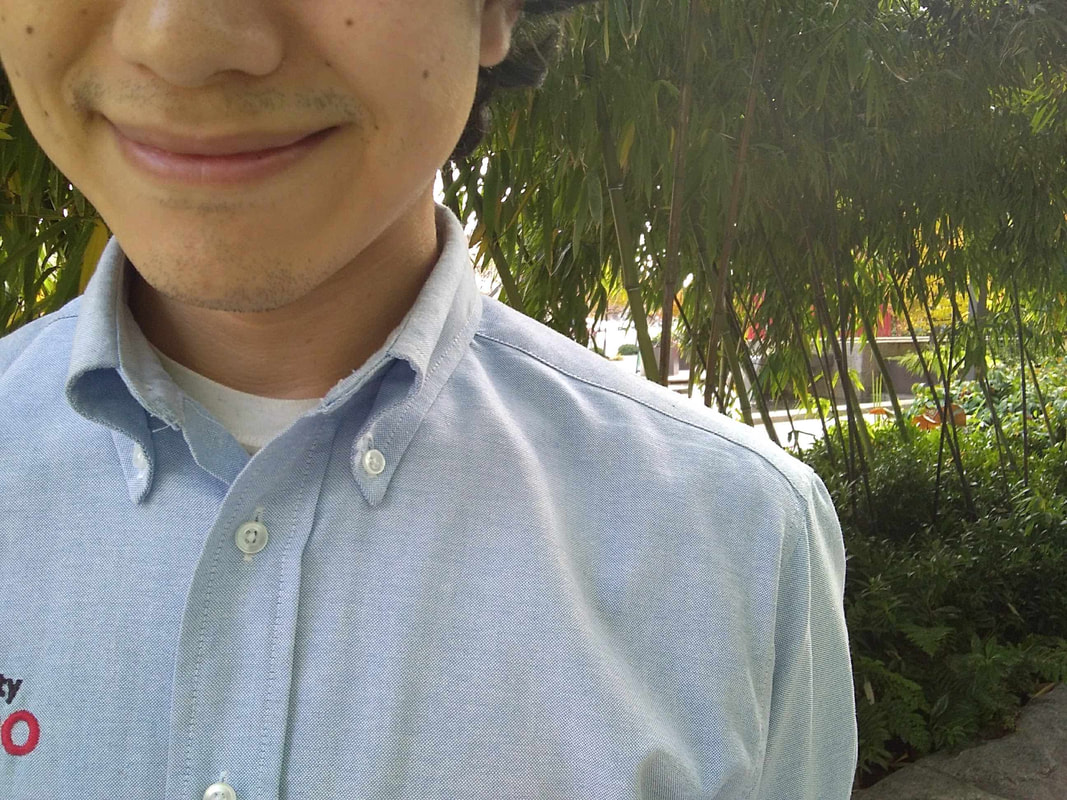
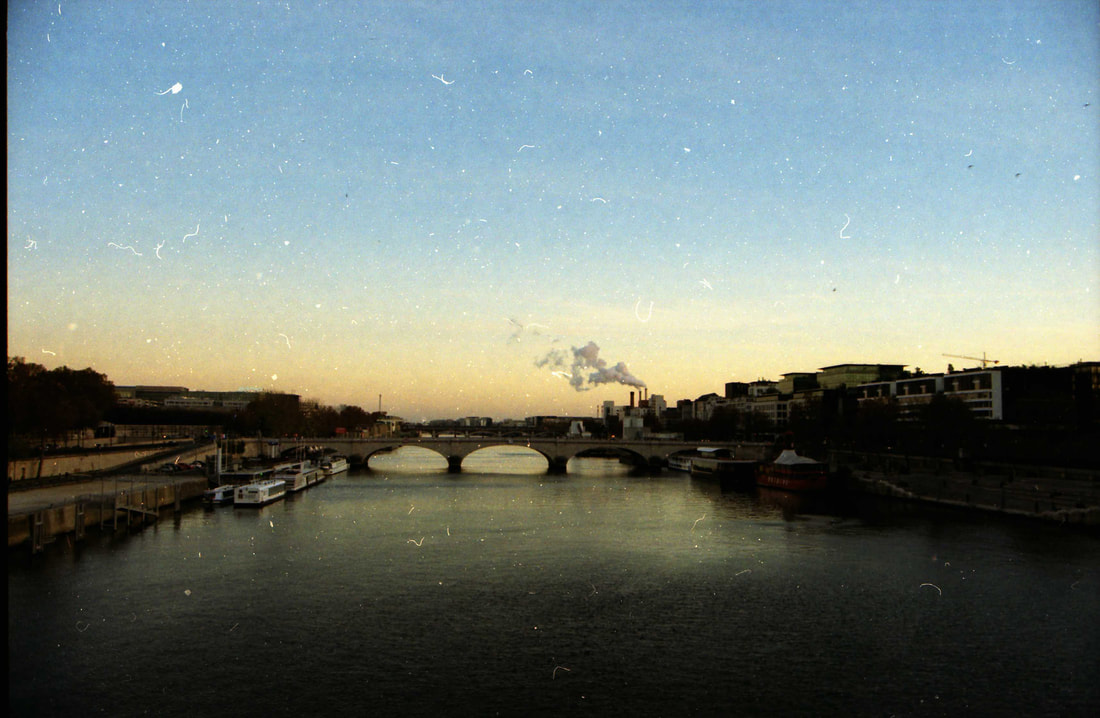
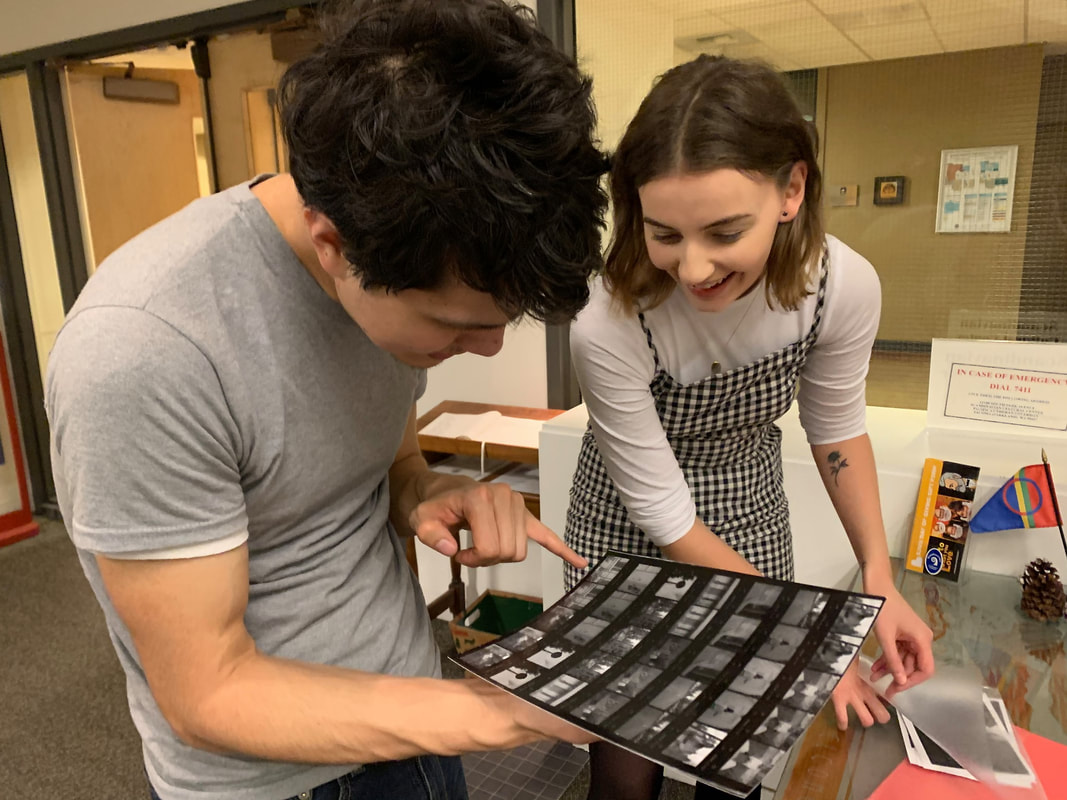
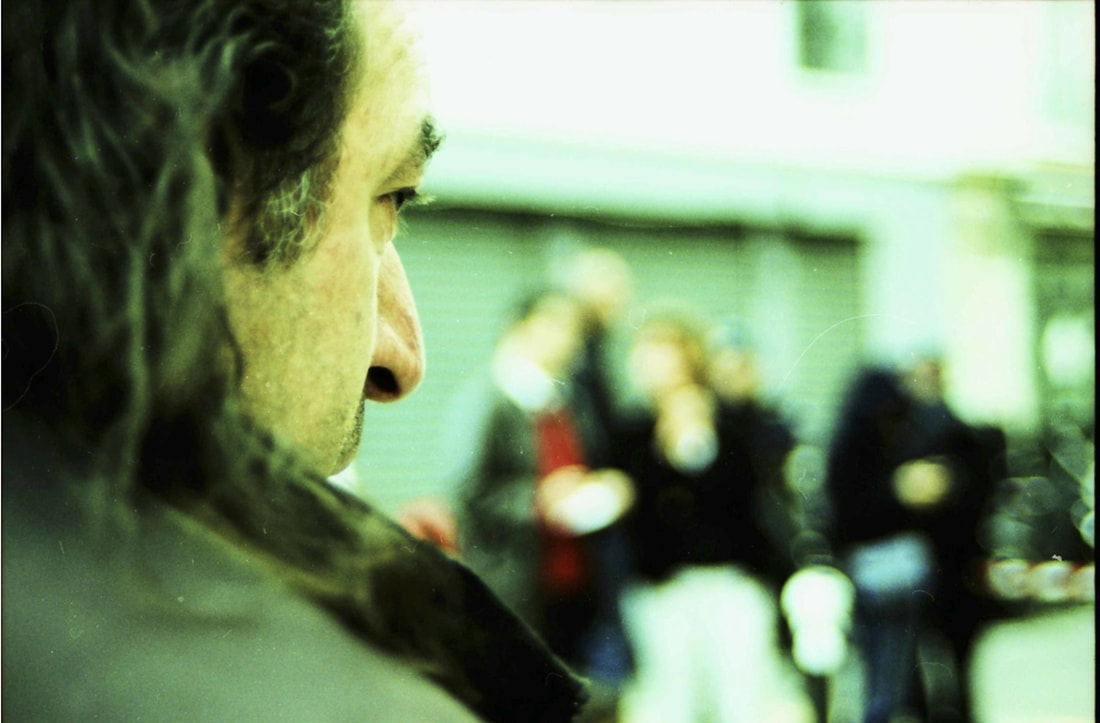
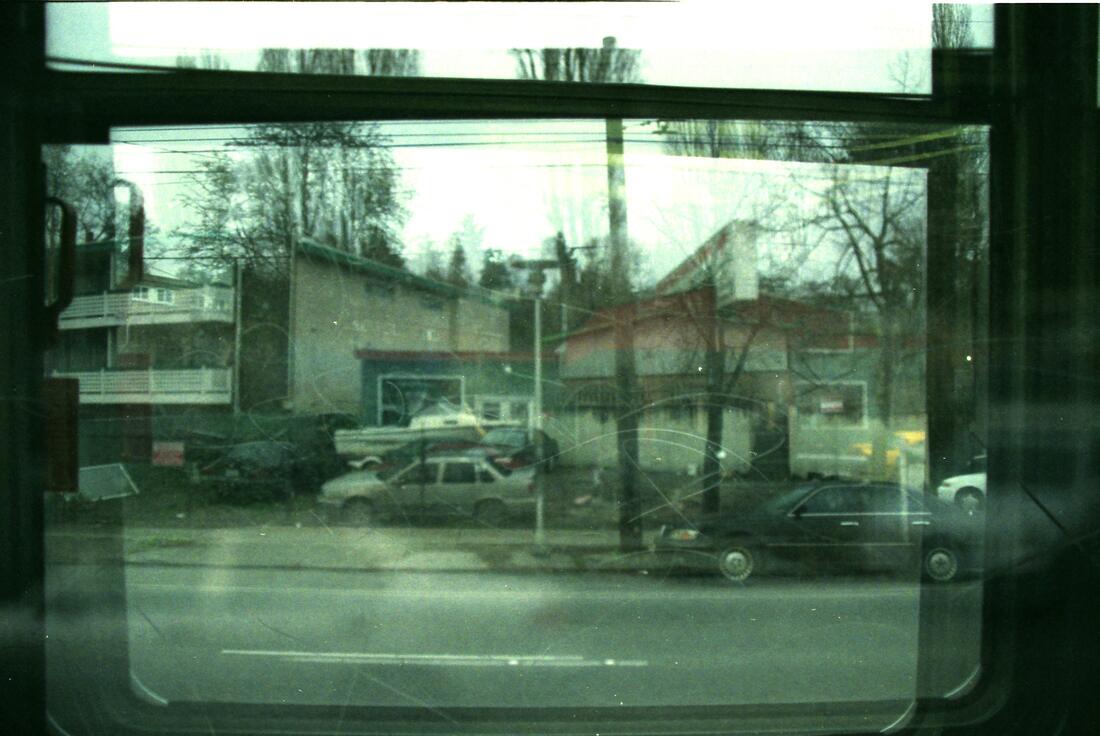
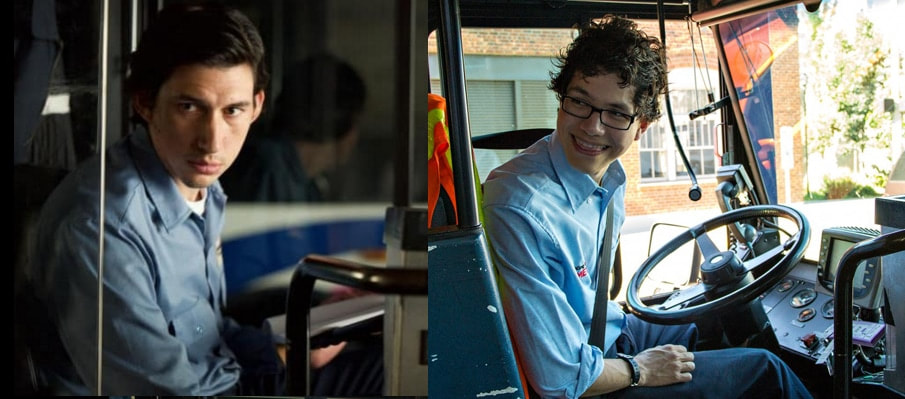
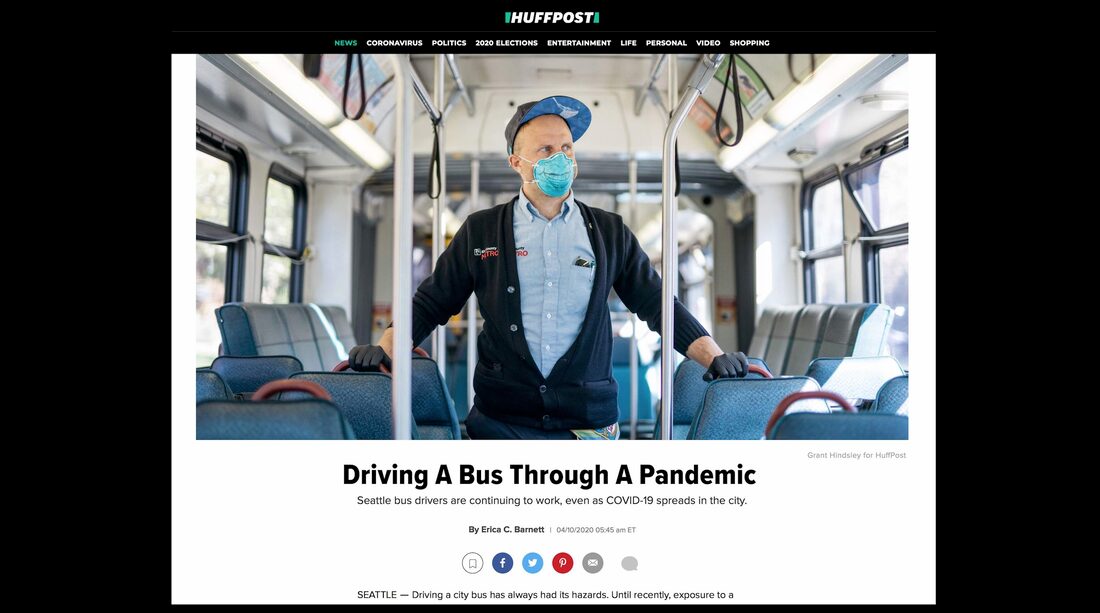
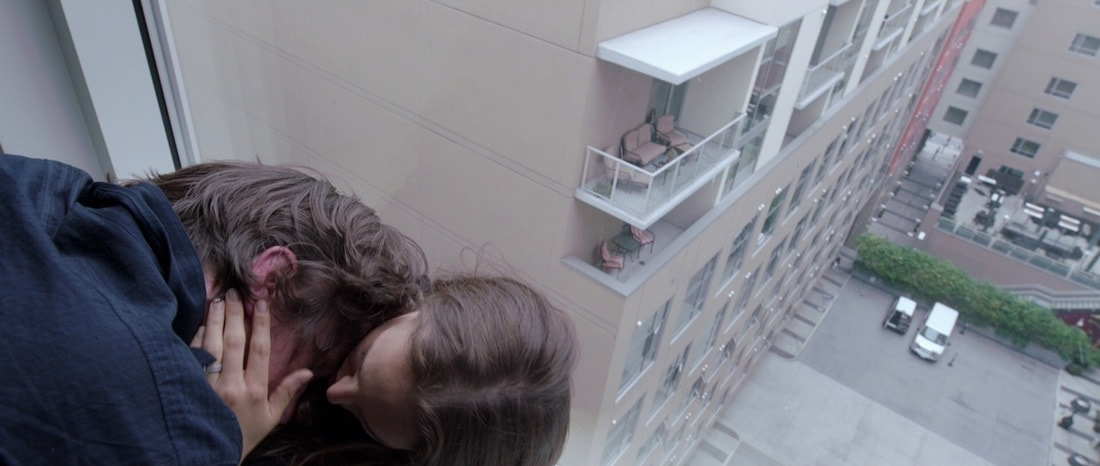
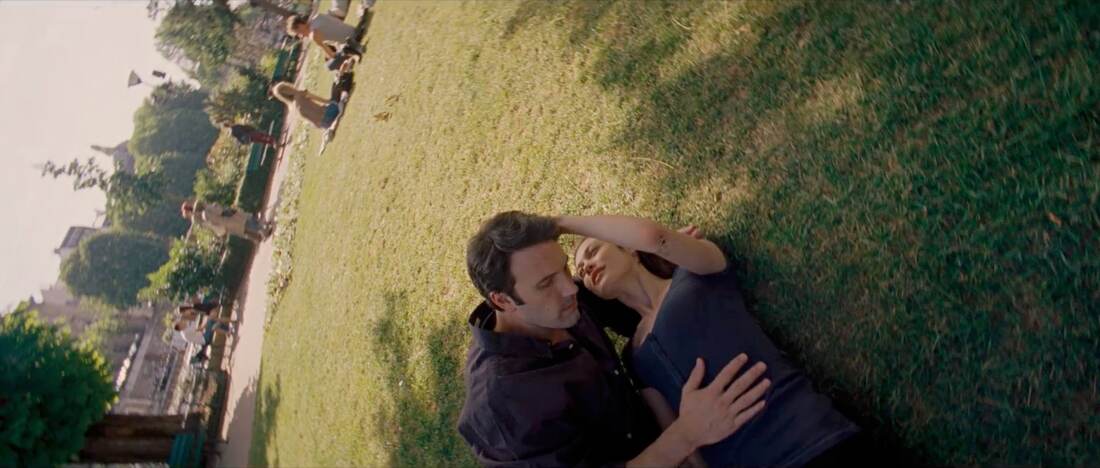
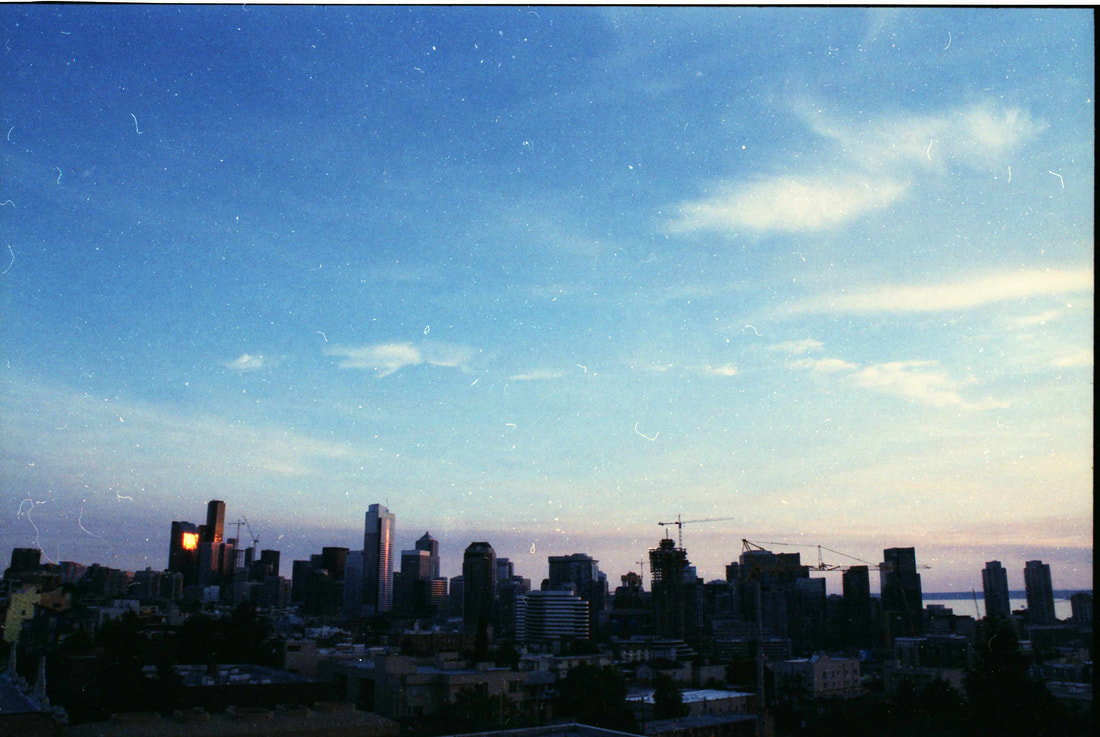
 RSS Feed
RSS Feed
